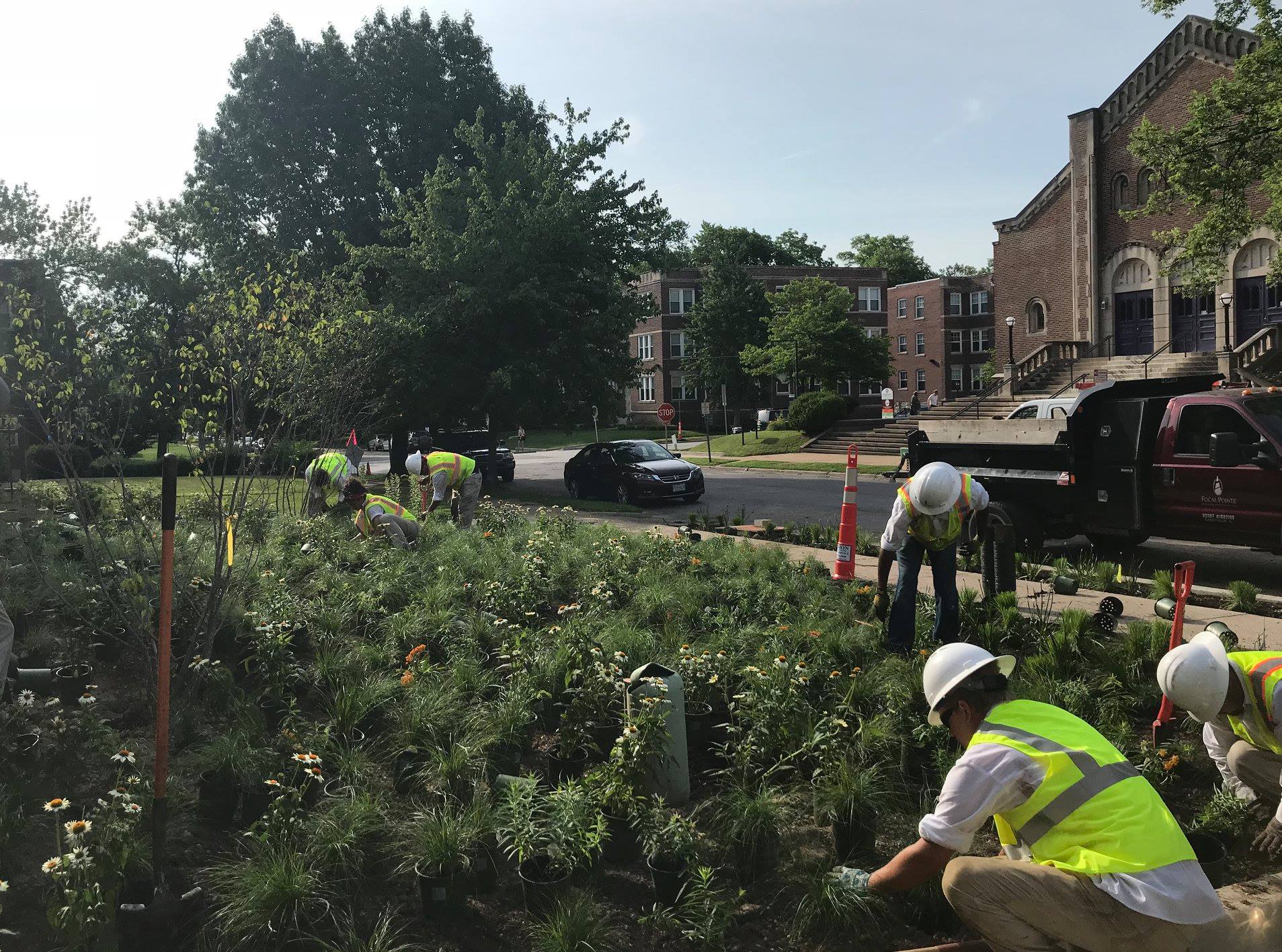
When Focal Pointe Outdoor Solutions started working with Washington University in St. Louis, Missouri, on implementing the university’s sustainability goals, it came to their attention that they didn’t have an internal structure for sustainable practices.
While they recognized sustainability was part of who they are, Focal Pointe didn’t have a collective approach to their operations and decisions. They talked to others in the industry but couldn’t find much on sustainable practices before finding the St. Louis Green Business Challenge.
The St. Louis Green Business Challenge is a program of the Missouri Botanical Garden that was initiated in 2010.
The Challenge assists companies with integrating sustainable measures into the daily operations common to every business. At the center of the Challenge is the “Triple Bottom Line” which considers the fiscal, social and environmental results. Focal Pointe formed a Green Team committee in response and has engaged with the Challenge for the past four years.
Since then, they have launched Focal Pointe University, which is a series of classes that help with professional and personal development like CDL prep and personal finance. They’ve also installed an outdoor classroom with native and non-native landscape species that can be used in conjunction with Focal Pointe University classes or personally to learn new species.
Focal Pointe has also focused on reducing waste and recycling. Plastic pot usage has been one of the major topics.
“Plastic pots are not recyclable in most single-stream recycling programs,” says Cody Azotea, an account manager with Focal Pointe Outdoor Solutions. “Prior to the pandemic, St. Louis did have a plastic pot recycler, but covid challenges forced this program to shut down. We work more with our local growers now to return and reuse. Subsequently, the pandemic has increased costs and availability of new pots, so we have seen an uptick in growers reaching out to us for pots.”
One of the sustainable landscaping practices the Challenge encourages is the use of native plants and increasing biodiversity.
“Our Challenge staff has always asked companies why they choose to engage with biodiversity measures,” says Jean Ponzi, manager of St. Louis Green Business Challenge. “Sometimes cost-savings are a motivator, although the three-growing-season cycle of native landscape maturation can delay this benefit. The one consistent report, from surveys in every year of this work: ‘We’re changing our landscaping because our people like the connection to nature – and our firm values this connection.’”
Challenge companies have also invested in green infrastructure for stormwater management, aided in water conservation by converting to ecological plantings and promoted environmental service opportunities such as stream clean-ups.
Since the program launched 250 businesses, non-profits and municipalities have joined the Challenge. Ponzi says these organizations have a powerful capacity to shift landscaping aesthetics through hiring professional design and maintenance companies.
“They help institutionalize ecological principles and practices capable of profoundly mediating some of the human-caused environmental damages,” Ponzi says.
Ponzi adds that Focal Pointe has been leading the pack as a Challenge participant. The company has gone from the early promotion of native plant choices to transforming for a formerly turf-heavy Fortune 500 client that now boasts of swaths of tallgrass prairie on one corporate campus, with plans for another.
“As our landscaping companies increasingly prioritize ecological design, installation, and maintenance offerings, they literally plant the leading edge of a native plant movement, across our regional economy,” Ponzi says. “Ecological landscapes are now a highly visible influence on St. Louis area corporate and institutional campuses, around schools and municipal buildings, in parks and other public green spaces – in addition to residential areas.”


